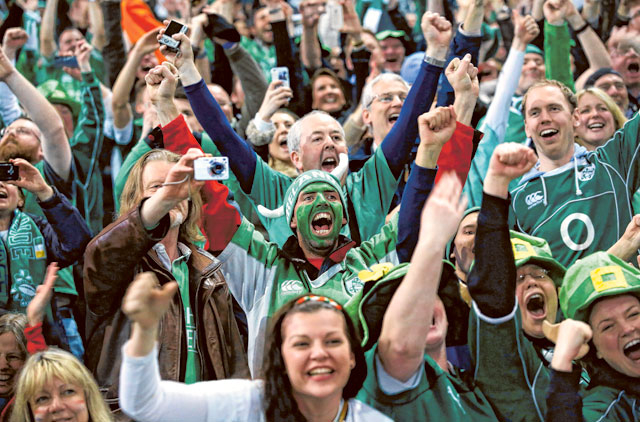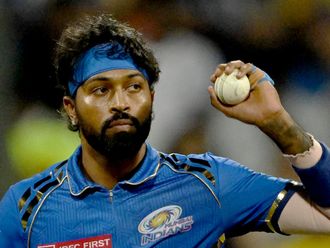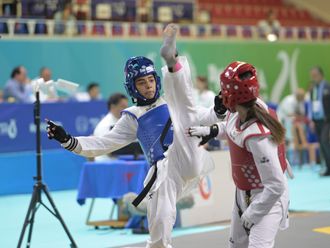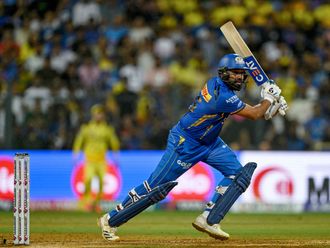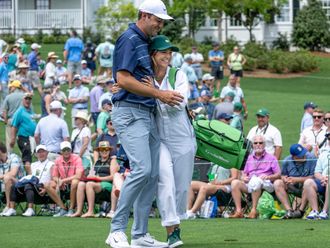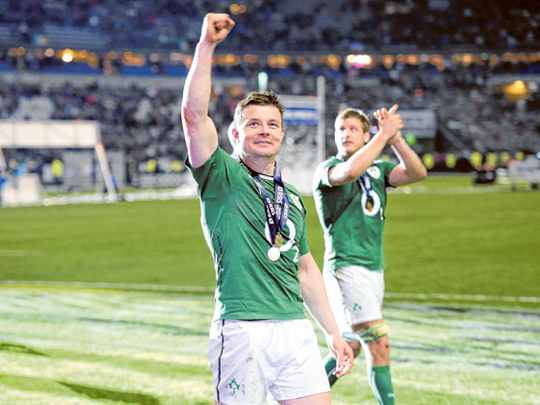
Dubai: So the 2014 Six Nations eventually opted to dance to the rhythm of romance over ruthlessness.
England’s 41-point battering of Italy shows Stuart Lancaster’s evolving squad is ruthless, clinical and hungry. The Red Rose will take much from their second place finish this year, having beaten eventual winners Ireland at Twickenham and generally prevailed in their ambition.
But it was the Emerald Isle’s year to shine. And few, if any, diehard rugby followers would have written the compelling narrative of this year’s competition any other way.
In Brian O’Driscoll’s last game for Ireland, he and his bruised, bloodied and battered teammates manufactured only a second win in 42 years in Paris to give the Dubliner one last moment of glory at the end of a very special 15-year career in international rugby.
The last time Ireland won in Paris — in 2000 — a 21-year-old O’Driscoll scored an eyebrow-raising hat-trick that signalled a legend in the making.
The final game of this year’s tournament couldn’t have been more nail-biting. Amid the arbitrary criticism surrounding the scheduling of the traditional Six Nations final day, it’s hats off to the organisers’ prescience in putting the Parisian classic last on Super Saturday.
Some critics have said that by having the games running one after another, it reduces the drama of the final games, for there are no fans checking radios in the stand, nor scores being relayed to coaches and players — a very tenuous and partisan argument that is surely trying to turn rugby into football, which it will never be. Such criticism is particularly unjustified when we consider the Parisian climax.
The greatest sporting occasions rest delicately on fine margins, and so it was with Ireland’s win in France.
Firstly, France coach Philip Saint-Andre made a ludicrous decision to bring first-choice scrum-half Maxime Machenaud off (apparently with ‘cramp’) for this year’s consistent underperformer Jean-Marc Doussain, when the former was kicking like a dream and attacking with verve, which effectively lost the game for Les Bleus. Doussain pulled a straightforward shot at goal horribly wide when he should have put them a point up with nine minutes to play. Once again, the French proving to be the scripters of their own downfall.
But the acme of this French drama came when Damien Chouly crossed the Irish line on 75 minutes, to the roar of the French crowd and a tense English public, only for referee Steve Walsh to call the play back and have the Television Match Official (TMO) scrutinise Pascal Pape’s assist pass. It was forward and Irish hopes rose again.
A note on the ever-capricious prima donna Walsh — two instances stand to highlight the long list of forgettable moments in the Kiwi’s already blotted history of officiating big matches. Cian Healy’s headbutt on Louis Picamoles, when he jumped over a ruck five meters from the Irish line straight into the French No. 8’s temple, was a blatant sin-bin offence, if not a straight red. How Walsh missed it is baffling. And Dimitri Szarzewski’s try — having dropped the ball before placing it on the post’s base — was awarded without consulting the TMO. In an age where referees more often than not opt to double check everything, was equally as concerning.
For England, this year’s Six Nations is one of realised ambition. But for their final ten minutes in Paris, they would have ascended to a first Grand Slam in 11 years — and few would have argued that Lancaster’s young guns would have deserved it. Mike Brown has been the outstanding performer throughout the tournament, while Danny Care, Courtney Lawes, Joe Launchbury and Luther Burrell have all stamped their marks into the fabric of this young side. If the consistency remains in their play throughout the winter, they will be an exciting prospect for the World Cup in their back yard next year.
As for Italy, they are reversing quicker than they accelerated in the last five years. Much work needs to be done if they are to challenge like they have done in recent years.
For Wales, whose afternoon’s work was made very easy by a late, rash and ugly challenge by Stuart Hogg on Dan Biggar — resulting in the Scot’s sending off — it will take a lot more than putting 50 points over woeful 14-man opposition to convince us that they are back to something like their best.


